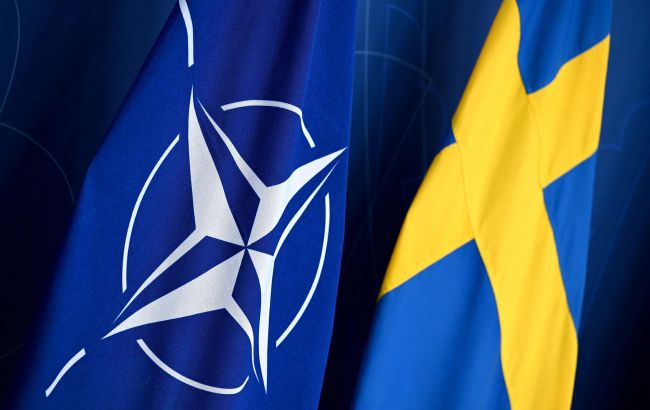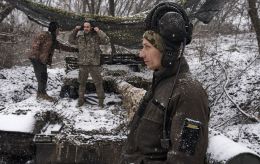Sweden joining NATO: Country's path towards alliance
 Sweden's path towards NATO (Getty Images)
Sweden's path towards NATO (Getty Images)
Sweden aims to join the North Atlantic Treaty Organization, marking a great shift in its international policy to stay out of alliances for the last 200 years. Russia's full-scale invasion of Ukraine in 2022 prompted Sweden, along with its neighbor Finland, to seek deep military cooperation within the Western alliance.
Read more about Sweden's NATO bid and the obstacles it faces on RBC-Ukraine.
Sources used: AP News, NATO website, The Guardian, Bloomberg, Wikipedia, Xinhua.
What is NATO and how it works
NATO is a security alliance, which currently consists of 31 members, mostly within Europe, with the U.S. and Canada as an exception. It has a dual purpose, ensuring the freedom and security of its members through both political and military strategies.
On the political front, NATO actively facilitates member countries in engaging, consulting, and collaborating on defense and security issues.
As for the military realm, it conducts joint military drills and regular cooperation between the armed forces of the allies. If diplomatic efforts prove unsuccessful, NATO possesses the military capability to conduct "crisis-management operations" or interventions aimed at establishing peace by force.
The key principle of NATO is collective defense which is rooted in Article 5 of NATO's founding treaty – the Washington Treaty. It obligates each member to consider an armed attack against one member state to be an armed attack against them all and take action accordingly.
For a new member to join NATO, all existing NATO countries must agree.
Why Sweden wants to join NATO now
Sweden has maintained neutrality since 1814, relying on its own strength while working closely with NATO. Sweden borders Russia, which considers NATO as its existential threat, as the country's officials regularly voice on international platforms.
Russia's full-scale invasion of Ukraine changed public opinion in Sweden. Swedish people started supporting NATO membership to bring more security for themselves.
In May 2022, Sweden applied formally for NATO membership, along with its neighbor Finland. But it was only March 2023, when the Swedish parliament voted to abandon the country's long-standing policy of military nonalignment.
Hungary and Türkiye oppose Sweden's bid
While Finland became a NATO member in April 2023, Türkiye and Hungary have delayed Sweden's application.
Türkiye had conditions, like a tougher stance on groups it sees as threats. Ankara urged Stockholm to strengthen its position on members of the Kurdistan Workers' Party (PKK) residing in Sweden, a group recognized as a terrorist organization by the U.S., the EU, and Türkiye. Sweden tried to resolve the issue by lifting an arms embargo and promising cooperation, but there were public protests that made things problematic.
At last, on January 23, the Türkiye parliament voted in favor of Sweden's bid, leaving Hungary the last barrier on Sweden's path towards NATO.
Hungary is delaying without clear reasons. Budapest pledged not to be the last state to ratify Sweden's application. But the voting of the Hungarian parliament has been postponed several times. As officials said, Sweden's criticism of Hungary's democratic concerns is one of the reasons why they have not approved the application yet.
The country is believed to hesitate because of its close ties with Russia. Viktor Orbán, Hungarian Prime Minister, is well-known for his controversial stance on the Russia-Ukraine war, regularly delaying EU aid for Kyiv and sparkling criticism among other European states. However, after Türkiye's ratification, he called on the Hungarian parliament to submit Sweden's bid as soon as possible.
NATO could benefit from Sweden
Sweden's geographic location is rather beneficial for NATO members, as its membership would surround the Baltic Sea with NATO countries, making the region stronger.
Although Sweden's army isn't the biggest among European states, it is quite valuable for NATO's defense capabilities. Sweden's air force and navy are overall modernized, and the government is planning to spend more on defense and security expenses.

